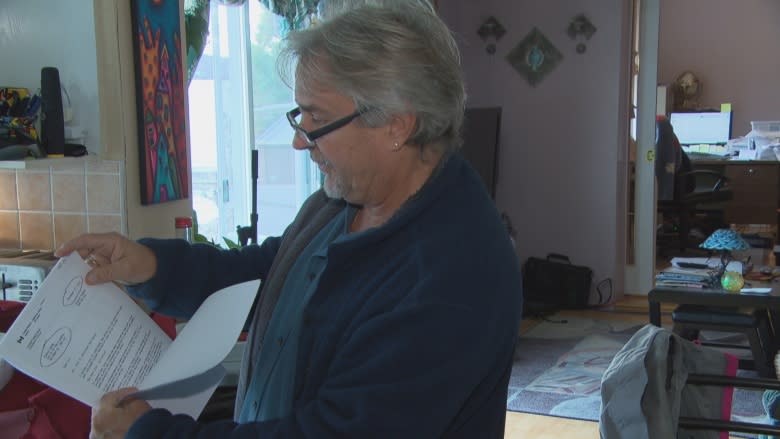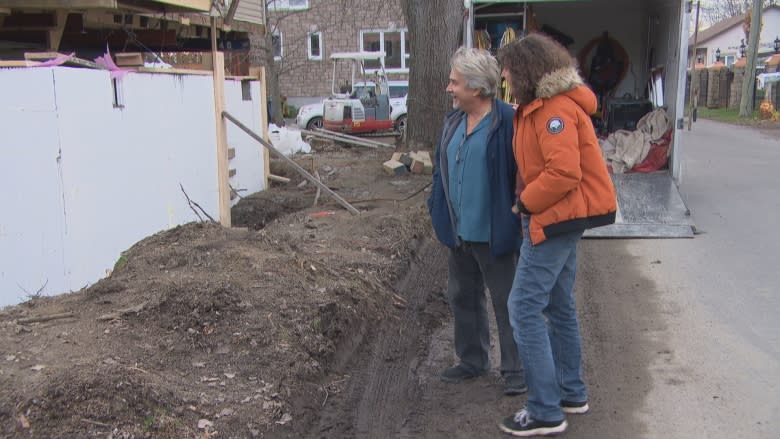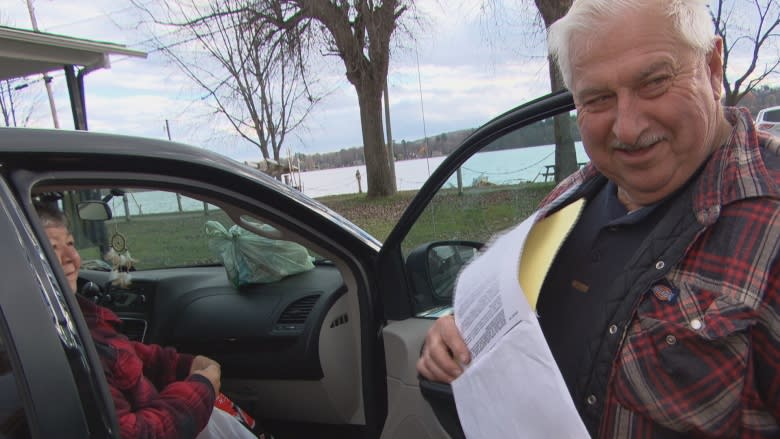Questions over residency stall Gatineau man's flood claim
All along chemin du Fer-à-Cheval, a picturesque street on the Ottawa River at the eastern edge of Gatineau, contractors' vehicles, cement trucks and cranes clog the roadway as residents whose homes were damaged in last spring's flooding put their disaster relief money to work.
But the banging and buzzing stops at No. 284, at the end of the street. The home's owner, Ron Geyer, is still locked in a battle with the province over whether he really lives there.
The province has so far rejected 107 of the 6,000 claims it's received from flood victims. Geyer has just 30 days before his claim becomes the 108th.
"My next-door neighbour, he's got his permission to redo his foundation. I don't even have an inspection," Geyer said as he watched the work underway next door, where the house sits on stilts while the newly poured foundation dries.
Across the street another neighbour has received a demolition permit and a $250,000 payout because part of that home is located in a high-risk flood zone.
Wall collapsed
Geyer's home sustained extensive damage, too. At the height of the flooding, the basement wall nearest the river blew out in the middle of the night.
"I'm lucky I wasn't killed," said Geyer. "My hot water tank is gone, everything is gone — the heat, the plumbing, the electrical — everything was destroyed when the wall blew in."
He spent the rest of the summer digging out the muck and wreckage with the help of friends and neighbours. He's even rebuilt the wall, afraid water and animals would cause more damage.
He paid for the repairs himself, while he waited for word on his disaster relief claim. When inspectors began showing up at his neighbours' homes in June, he began to worry he might have a problem.
Then in October, when Geyer realized he was the only resident on the street who hadn't been called to a one-on-one meeting to settle claims, he started to panic.
Eventually he discovered that the province wasn't convinced his home was his primary residence — a requisite for receiving aid. He set out to show that it is, and said he has tax returns and mortgage documents to prove it, but has now been told he has just one more month to remove any doubt.
"I'm at my wit's end," Geyer said, shuffling through a stack of correspondence.
Neighbours support claim
Geyer's neighbours said they're ready to back up his claim.
"I said to the [public security ministry], 'Come talk to his neighbours,'" said Roxanne Briand, who lives next door.
"I feel bad for him because he's a citizen who pays taxes like us," said Briand, who added that even for francophones, communicating with the ministry is difficult. For Geyer, an anglophone, it's a "double-whammy," Briand said.
Maurice Lavoie, the neighbour who's received the demolition permit, is also sympathetic to Geyer's plight, and wonders whether Geyer's home, too, should be demolished rather than repaired.
But Geyer said he's staying put, because he loves his home by the water. He's been gathering some of the scrap insulation from Briand's reconstruction project to wrap around the pipes in his own basement so they won't freeze this winter.
'I'm going to rough it out'
"I'm going to rough it out," he said. "It won't be easy."
Citing confidentiality, the ministry would not provide a detailed response to questions about its position on Geyer's claim.
"We continue to communicate with [Geyer] and for the moment, the documents provided us do not allow us to authorize his admissibility to the program," spokesperson Louise Quintin wrote in an email to CBC.
To date 1,500 residents in west Quebec have submitted disaster relief claims, and the province has paid out more than $25-million, with more payouts expected by Christmas.




